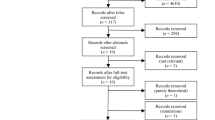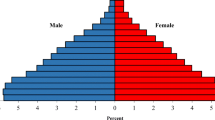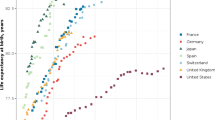Abstract
Disability-free life expectancy estimates (DFLE) are summary measures to monitor whether a longer life expectancy (LE) is associated with better health or whether additional years of life are years of poor health or disability. Disability is a generic term defined as the impact of disease or injury on the functioning of individuals. It covers various situations from the rather common functional limitations to restrictions in daily activities and finally dependency. Disentangling these dimensions is essential to monitor future needs of care and assistance; but this is not always feasible since surveys do not systematically cover a large range of disability dimensions in their questionnaires. This study aims to cover different disability dimensions by using data from different French population surveys. We computed ten disability-free life expectancies, based on both specific and generic disability indicators from four population health surveys, in order to describe and compare trends and patterns for France over the 1980s and the 1990s. We used the Sullivan method to combine prevalence of disability and life tables. In 2000, two thirds of total LE at age 65 are years with physical or sensory functional limitations and 10% are years with restrictions in personal care activities. Trends in DFLE over the two last decades seem to have remained stable for moderate levels of disability and to have increased for more severe levels of disability or activity restrictions. We found that patterns are consistent from one survey to the other when comparing indicators reflecting similar disability situations.

Similar content being viewed by others
References
Agree E (1999) The influence of personal care and assistive devices on the measurement of disability. Soc Sci Med 48(4):427–443
Auvray L, Doussin A, Le Fur P (2003) Santé, soins et protection sociale en 2002: Enquête Santé et Protection Sociale (ESPS), France [Health, care and social protection in 2002: survey on health and social protection, France]. Rapport IRDES 1509 (2003/12), Paris, pp 181
Barberger-Gateau P, Rainville C, Letenneur L, Dartigues J-F (2000) A hierarchical model of domains of disablement in the elderly: a longitudinal approach. Disabil Rehabil 22(7):308–317
Cambois E, Robine J-M, Mormiche P (2007) Did the prevalence of disability in France really fall in the 1990s? A discussion of questions asked in the French health survey. Population E 62(2):313–326
Cambois E, Robine JM, Romieu I (2005) Risks of restrictions in personal care activities at older ages: determining the concurrent role of functional limitations, age, sex and place of residence. Disabil Rehabil 27(15):871–883
Doussin A, Le Fur P, Dumesnil S (2002) Enquête Santé et Protection Sociale (ESPS) : méthode et déroulement de l’enquête. [“Health, health care and insurance survey” (ESPS): methodology and process of the survey”] Rapport IRDES 1401, (2002/12), Paris, pp 190
Eurostat (1997) ECHP working group: response rates for the first three waves of the ECHP Doc PAN 92/97
Fougeyrollas P, Majeau P (1991) Le processus de production des handicaps: comment utiliser le modèle conceptuel: exemple. Réseau international CIDIH 4(3)
Freedman VA, Agree EM, Martin LG, Cornman JC (2006) Trends in the use of assistive technology and personal care for late-life disability 1992–2001. Gerontologist 46:124–127
Freedman VA, Crimmins E, Schoeni RF, Spillman BC, Aykan H, Kramarow E, Land K, Lubitz J, Manton K, Martin LG, Shinberg D, Waidman T (2004) Resolving inconsistencies in trends in old-age disability: report from a technical working group. Demography 41(3):417–441
Hendershot GE (2006) Survey measurement of disability: a review of international activities and recommendations. In: Altman B, Barnartt S (eds) International views on disability measures: moving toward comparative measurement. Elsevier, Oxford, pp 17–40
Imai K, Soneji S (2007) On the estimation of disability-free life expectancy: Sullivan’s method and its extension. J Am Stat Assoc 102(480):1199–1211
Jagger C, Arthur A, Spiers N, Clarke M (2001) Patterns of onset of disability in activities of daily living with age. J Am Geriatr Soc 49(4):404–409
Jagger C, Cox B, Le Roy S, EHEMU group (2006) Health expectancy calculation by the Sullivan method, 3rd edn. EHEMU Technical Report [downloaded from http://www.ehemu.eu/; training material and calculation guide]
Katz S, Ford A, Moskowitz R, Jackson B, Jaffe M (1963) Studies of illness in the aged. The Index of ADL: a standardized measure of biological and psychosocial function. JAMA 185(12):914–919
Lawrence R, Jette A (1996) Disentangling the disablement process. J Gerontol Soc Sci 51B(4):S173–S182
Lawton M, Brody E (1969) Assessment of older people: self-maintenance and instrumental activities of daily living. Gerontologist 9:179–186
Nagi S (1965) Some conceptual issues in disability and rehabilitation. In: Sussman M (ed) Sociology and rehabilitation. American Sociological Association, Washington, pp 100–113
Office for National Statistics (ONS) (2006) Report: health expectancies in the UK, 2002. Health Stat Q 29:59–62
Parker MG, Ahacic K, Thorslund M (2005) Health changes among Swedish oldest old: prevalence rates from 1992 and 2002 show increasing health problems. J Gerontol Med Sci 60(10):1351–1355
Perenboom RJ, Van Herten LM, Boshuizen HC, Van Den Bos GA (2004) Trends in disability-free life expectancy. Disabil Rehabil 26(7):377–386
Robine J-M, Michel J-P (2004) Looking forward for a general theory on population aging. J Gerontol A Biol Sci Med Sci 59:590–597
Robine JM, Mormiche P (1994) Estimation de la valeur de l’espérance de vie sans incapacité en France en 1991 [Estimation of the value of disability-free life expectancy in France in 1991]. Solidarité Santé 1:17–36
Robine JM, Ravaud J-F, Cambois E (1997) General concepts of disablement. In: Hamerman D (ed) Osteoarthritis: public health implication for an aging population. John Hopkins University Press, Baltimore, pp 63–83
Robine JM, Romieu I, Michel JP (2003) Trends in health expectancies. In: Robine JM, Jagger C, Mathers C, Crimmins E, Suzman R (eds) Determining health expectancies. Wiley, Chichester, pp 75–101
Rodgers W, Miller B (1997) A comparative analysis of ADL questions in surveys of older people. J Gerontol B 52B (special issue):21–36
Sagardui-Villamor J, Guallar-Castillon P, Garcia-Ferruelo M, Banegas JR, Rodriguez-Artalejo F (2005) Trends in disability and disability-free life expectancy among elderly people in Spain: 1986–1999. J Gerontol A Biol Sci Med Sci 60:1028–1034
Smith LA, Branch LG, Scheer PA, Wetle T, Evans DE, Hebert L, Taylor JO (1990) Short-term variability of measures of physical function in older people. J Am Geriatr Soc 38:993–998
Spillman BC (2004) Changes in elderly disability rates and the implications for health care utilization and cost. Milbank Q 82(1):157–194
Sullivan DF (1971) A single index of mortality and morbidity. HSMHA Health Rep 86(4):347–354
Tager IB, Swanson A, Satariano WA (1998) Reliability of physical performance and self-reported functional measures in an older population. J Gerontol Med Sci 53A(4):M295–M300
Van Oyen H, van der Heyden J, Perenboom RC, Jagger C (2006) Monitoring population disability: evaluation of a new Global Activity Limitation Indicator (GALI). Soz Praventivmed 51:153–161
Verbrugge L (1997) A global disability indicator. J Aging Stud 11:337–362
Verbrugge L, Jette A (1994) The disablement process. Soc Sci Med 38:1–14
Verbrugge L, Rennert C, Madans J (1997) The great efficacy of personal and equipment assistance in reducing disability. Am J Public Health 87(3):384–392
Wiener JM, Hanley RJ, Clark R, Van Nostrand JF (1990) Measuring the activity of daily living: comparison across national surveys. J Gerontol Soc Sci 45(6):S229–S237
Wolf DA, Hunt K, Knickman J (2005) Perspectives on the recent decline in disability at older ages. Milbank Q 83:365–395
Wood P, Badley E (1978) An epidemiological appraisal of disablement. In: Bennett A (ed) Recent advances in community medicine. Churchill Livingstone, Edinburgh, pp 149–173
World Health Organization (WHO) (1980) International classification of impairments, disabilities, and handicaps. WHO, Geneva
World Health Organization (WHO) (2001) International classification of functioning, disability and health: ICF. WHO, Geneva
Acknowledgements
This study was funded by the Research and Statistics Department of the French Ministry of Health (DREES).
Author information
Authors and Affiliations
Corresponding author
Rights and permissions
About this article
Cite this article
Cambois, E., Clavel, A., Romieu, I. et al. Trends in disability-free life expectancy at age 65 in France: consistent and diverging patterns according to the underlying disability measure. Eur J Ageing 5, 287–298 (2008). https://doi.org/10.1007/s10433-008-0097-1
Published:
Issue Date:
DOI: https://doi.org/10.1007/s10433-008-0097-1




